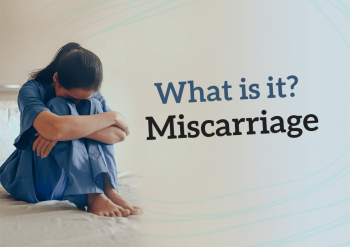Miscarriages are an unfortunately common occurrence, affecting up to 20% of known pregnancies. Despite this prevalence, many people are at a loss as to what to say to someone who had a miscarriage, they are also unsure how to offer support to those who have experienced such a loss. The emotional pain that comes with a miscarriage can be overwhelming, and knowing what to say or do to help can be challenging.
In this article, we will provide practical advice on how to support and empathize with someone who has gone through a miscarriage, drawing on personal anecdotes and expert insights to guide you in offering meaningful comfort.
Understanding the impact of miscarriage
Before diving into the specific ways to support someone who has had a miscarriage, it’s essential to understand the profound impact this event can have on their life.

A miscarriage is not only a physical loss but also an emotional one, as hopes and dreams for the future are suddenly taken away. Feelings of grief, guilt, and isolation are common, making compassionate support from loved ones all the more crucial.
Offer a listening ear
Validate their feelings
One of the most powerful ways to support someone who has experienced a miscarriage is by validating their feelings. Grief is a complex and individual process, and there is no “right” way to feel when coping with a loss.

Acknowledge their pain and reassure them that their emotions are valid and understandable. As one woman who experienced a miscarriage shared, “The most helpful thing my friend did was to simply say, ‘I’m so sorry for your loss. It’s okay to feel sad, angry, or confused.'”
Be present and listen
Sometimes, the best support you can offer is simply being present and listening. Encourage the person to share their feelings and thoughts, without judgment or the pressure to “move on.” As one expert suggests, “Allow them to express their emotions and be a safe space for them to grieve.”

Offer practical support
Help with everyday tasks
In the aftermath of a miscarriage, daily tasks can feel overwhelming. Offering practical support, such as cooking a meal, running errands, or taking care of household chores, can provide much-needed relief during this difficult time.
Encourage self-care
Self-care is crucial during the grieving process, yet it can be easy for someone to neglect their own needs while they cope with a loss. Gently encourage your loved one to prioritize their physical and emotional well-being, whether by suggesting a relaxing activity, accompanying them to a therapy appointment, or simply checking in on how they’re feeling.
Be sensitive to triggers
Avoid comparisons
It’s important to avoid comparing your loved one’s experience with that of others, as this can minimize their pain and make them feel as though their grief is not valid. Remember that every person’s journey through loss is unique.

Be mindful of announcements
While sharing happy news, such as a pregnancy announcement, is a natural part of life, it’s essential to be mindful of how this might affect someone who has recently experienced a miscarriage. Consider sharing the news privately, giving them space to process their emotions before celebrating with the larger group.
Offer ongoing support
Check-in regularly
Grief doesn’t have a set timeline, and the healing process can take time. Make an effort to check in with your loved one regularly, even after the initial shock has subsided. This ongoing support can be invaluable as they navigate their emotions and find their way forward.
Encourage professional help if needed
If you notice that your loved one is struggling to cope with their grief, it may be helpful to suggest professional support, such as therapy or counseling. Remember that seeking help is a sign of strength, not weakness, and can be an essential step in the healing process.
In conclusion, supporting someone who has experienced a miscarriage can be challenging, but with empathy, understanding, and practical assistance, you can offer meaningful comfort during this difficult time.
By validating their feelings, offering a listening ear, providing practical support, being sensitive to triggers, and offering ongoing care, you can help your loved one navigate the complex emotions that accompany pregnancy loss.



